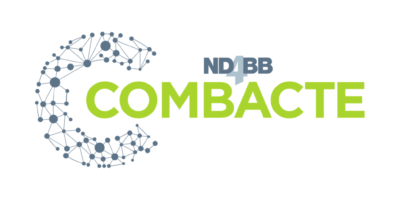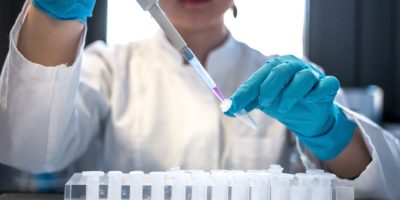ECCMID 2017 Highlights: Jan Kluytmans
2 weeks left until the European Congress of Clinical Microbiology and Infectious Diseases (ECCMID). COMBACTE will be present in the exhibition hall, and will host its 5th consecutive Investigators Meeting. This week’s highlight Prof. Dr. Jan Kluytmans is Work Package lead of COMBACTE-NET’s studies ASPIRE-ICU and ASPIRE-SSI. Dr. Kluytmans’ experience in the microbiology field goes back 30 years, when diseases such as HIV or Legionnaires disease were emerging. He was intrigued by the mystery enfolding these pathogens, and decided to dedicate his career to studying them in more detail.
Dr. Kluytmans is Professor of Clinical Microbiology and Infection Control at VU University Medical Center Amsterdam, and associate professor at the University Medical Center Utrecht. He is also Microbiology Consultant at Amphia Hospital in Breda.
When was your first ECCMID?
“It was 26 years ago in Oslo, in 1991. It was one of the first international conferences I ever attended.”
What was your first impression when you attended ECCMID in 91?
“It was not a big conference. In those years the US conferences like ICAAC were the biggest worldwide. ECCMID was just starting. I remember I was presenting my poster in a kind of a tent, and there was sand on the floor. I thought, well, this is science in Europe (laughs). But it was a lot of fun, a lot of people that I met at ECCMID over the years have become colleagues and some also good friends.
Now the ECCMID is the main event in microbiology and infectious diseases in the world. It’s the largest, most international conference of this kind.”
What is your role during ECCIMD 2017?
“This year I will present at the ‘Meet the Expert’ meeting: ‘S. aureus colonization and preventive interventions’, and show a little bit about what I’ve experienced in the 25 years that I’ve been working on that topic. Next to that I will chair a session on ‘Plasmid-born Resistance’.
I’m also member of the ECCMID Program Committee for 4 years now. It’s one of the tasks I have outside of my regular work which I enjoy a lot because it’s very much content-driven. I am happy that I was invited to be part of the Program Committee again in 2018.”
What does the ECCMID Program Committee entail specifically?
“The program is created with many experts from around the world together with the ESCMID Executive Committee. Participants submit their abstracts, which are reviewed and scored. The Committee then makes a selection and decide if they are going to be oral presentations, posters, e-posters, and so on. Besides that we design several other sessions based on proposals that are made by study groups, program committee members, etc.”
Knowing the program beforehand gives you a good overview of what’s going on during the conference. How do you decide which session you want to attend?
“As a member of the Program Committee, you often have to chair different sessions, some of them proposed by yourself. For the rest it depends on my time, and what interests me most.”
You will be speaking at the yearly COMBACTE Investigators Meeting. Why is this meeting important?
“I think it’s important mainly from the personal contact perspective. It is a great occasion to meet with our partners and collaborators face to face, and discuss different topics. A lot of these people visit the ECCMID, you can meet them, and that’s a very important part of communication.“
Why is ECCMID important for COMBACTE?
“COMBACTE is a European Project, which involves infectious diseases, and there is no other meeting on this specific topic that comes close to ECCMID. It’s also in Europe, so for a European network, many people participating from the network will be there. People will also participate from all over the world, it’s really something like where the world meets in our field.”
You’ve been involved in the microbiology field for a very long time. You have been giving a lot of interviews on antimicrobial resistance, Staphylococcus aureus; you’ve discovered the concept of perioperative eradication of nasal carriage as an infection control measure. A lot of dedication and research went into your work. Where does this interest for microbiology come from?
“Frankly, it was all very coincidental. I discovered along the way that microbiology is something that I liked. I went to medical school to become a general practitioner. Then I became interested in surgery and wanted to be a surgeon. In my 4th year I could choose between a few optional topics, and one of them was ‘Legionnaires disease’, a disease with an unknown cause. People went ill and some of them died, and nobody knew the cause. It turned out to be a new bacterium, called Legionella. I found that intriguing, that you have this unknown cause, and then you identify a new bacteria. After I finished school, I had to go to army in the Royal Air for 14 months, during which I was still in doubt whether I wanted to become a surgeon or microbiologist. But a call from my biology professor was probably decisive. He asked me if I wanted to work in his laboratory as a resident, and I decided to give it a try. And my interest only increased since then.
My dedication is to use the knowledge of microbiology, combined with epidemiology to prevent disease. Infectious diseases is the ideal field to put that into practice. It’s a very dynamic field, and I really like the combination of being active in the hospital, looking at disease patterns and transmission and optimizing prevention.”
Do you have a message for our network ?
“The problem of antimicrobial resistance offers a unique opportunity to really strengthen our collaboration within Europe, which is really essential for the future. So take the chance!”
Related updates

The Last of COMBACTE: COMBACTE-NET

Important Pieces Of A Puzzle
